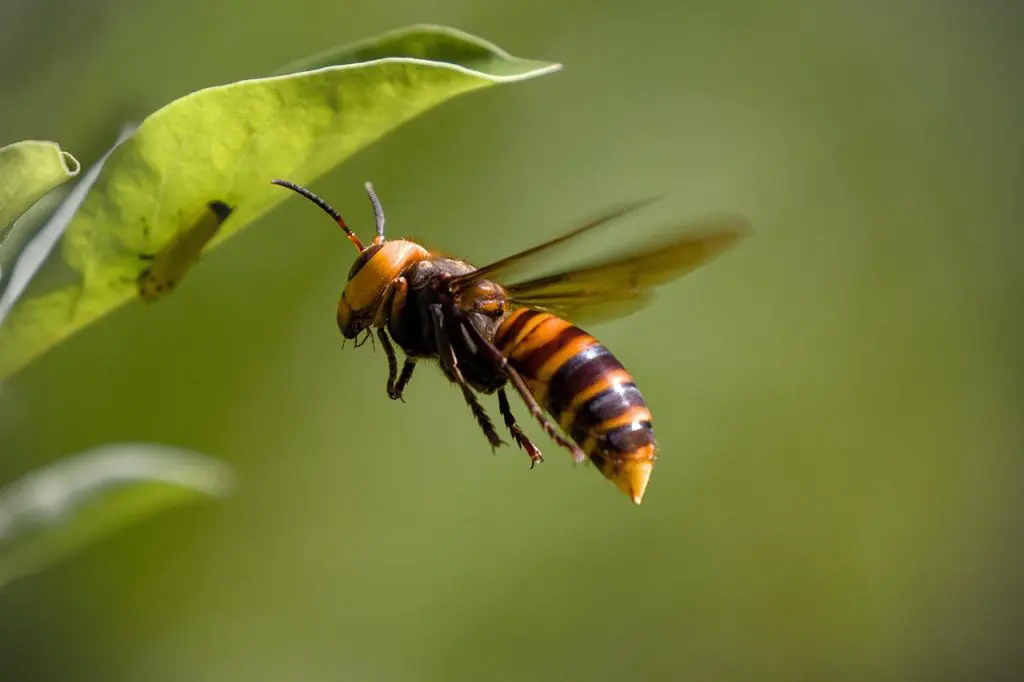
Asian Hornet Spotted in Cork Triggers Biosecurity Alert A biosecurity alert has been declared after a confirmed sighting of an Asian hornet (Vespa velutina) in Cork. The invasive species, which poses a significant threat to Ireland’s biodiversity, was spotted and captured by a member of the public, according to the National Parks and Wildlife Service […]
A biosecurity alert has been declared after a confirmed sighting of an Asian hornet (Vespa velutina) in Cork. The invasive species, which poses a significant threat to Ireland’s biodiversity, was spotted and captured by a member of the public, according to the National Parks and Wildlife Service (NPWS).
The Asian hornet is a non-native predatory insect that preys on honeybees and other beneficial insects. A single nest has the potential to devastate local pollinator populations, particularly honeybees, which play a crucial role in pollination and ecosystem health.
While the Asian hornet can sting, the NPWS clarified that it does not pose a significant public health risk. People are advised not to disturb or attempt to capture one, as it may sting if provoked.
Honeybees are critical pollinators for Ireland’s native flora and many agricultural crops, including apples, berries, and oilseed rape. A single Asian hornet can kill up to 50 honeybees a day, and a nest may consume thousands. The decline of honeybee populations due to predation, habitat loss, and pesticides threatens food security and ecological balance.
Even a temporary disruption to pollination services can result in reduced yields, increased costs for farmers, and a diminished diversity of wild plant species.
While honeybees are the Asian hornet’s primary prey, the impact could ripple through food webs. Birds, bats, and small mammals that rely on insect populations for food may face reduced prey availability. Over time, this could alter nesting success rates, migration patterns, and species abundance in certain areas.
Such indirect effects are difficult to measure in the short term but could shape long-term ecosystem stability.
Following the 12th of August capture of an individual hornet, the NPWS activated its rapid response protocol. A multi-agency taskforce (including Government departments and the Asian Hornet Management Group (AHMG)) has been assembled to assess whether this is an isolated case or part of a broader issue.
Initial surveys in the area found no evidence of a nest or wider activity, but ongoing monitoring is planned in the coming weeks.
In future, genetic barcoding and molecular analysis of captured specimens could help determine whether Irish hornets are:
Isolated introductions (e.g., through freight imports)
Part of a broader European migration
Related to UK hornet populations
This can inform customs monitoring, trade pathway risk assessments, and prevention strategies at ports.
This is only the second confirmed sighting of an Asian hornet in Ireland. The first occurred in Dublin in 2021, with no evidence of an established population. Both incidents highlight the critical importance of early detection.
“We must take even a single sighting very seriously,” said Minister for Biodiversity Christopher O’Sullivan. “This incident shows us that members of the public are our eyes on the ground. Early detection is key if we are to prevent the establishment of this invasive species.”
The NPWS and the National Biodiversity Data Centre (NBDC) are urging the public to remain alert and report any suspected sightings via the Alien Watch reporting portal.
Reports should include:
Photographs, if safely possible
Precise location coordinates
Dead specimens, if available (safe to collect only postmortem)
The Asian hornet can be mistaken for several native insects, such as:
The giant woodwasp
The dark giant horsefly
The common wasp
The NPWS has released guidance to help differentiate the Asian hornet from these similar-looking species.
As part of the response, survey teams have been engaging with local residents and beekeeping associations to raise awareness about the hornet and to share resources on accurate identification.
Visit the National Biodiversity Data Centre’s Alien Watch portal to learn how to recognise and report Asian hornets.
Never approach or disturb a suspected nest.
Share educational materials with your local community or beekeeping groups.
The detection of an Asian hornet in Cork is a serious biodiversity concern, but thanks to swift action by the NPWS and public vigilance, efforts are already underway to prevent its establishment. Continued surveillance, public education, and early reporting remain essential to protecting Ireland’s ecosystems from this invasive threat.
At All-Ireland Sustainability, we’re committed to building a greener, fairer island, together. Stay informed on the latest environmental initiatives, community action, and policy developments shaping sustainability across Ireland, North and South.
👉 Sign up for our newsletter today and be the first to hear about upcoming events, expert insights, and ways to get involved.
Whether you’re a seasoned advocate or just starting your journey, new members are always welcome.
Subscribe now and be part of the All-Ireland Sustainability network.